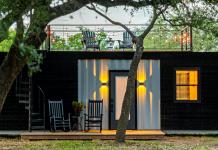
Buying a home is probably one of the biggest investments you’ll make in your lifetime, which is why the decision needs considerable attention, especially for young families. Here are some things to keep in mind before you take the plunge.
Natural living – Children need space for exercise and physical activities that are needed for healthy development. This is why it’s important to consider a place that has a garden, preferably with access to natural areas like nature reserves, beaches and parks with hiking and biking trails. Climbing trees, fishing in dams, making outdoor forts … these are all wonderful moments that make up a childhood so it’s worth considering the natural facilities available.
Accessibility – Young families don’t necessarily want a home in the heart of the city, or on a busy road network, but it’s important that there is still access to the relevant facilities such as good schools, sports’ grounds, shopping centres and healthcare facilities.
Security – The reality of living in South Africa is that security has to be prioritised when choosing a home. It’s no good having access to great natural facilities if the children aren’t able to freely enjoy them. That’s why estate living is fast becoming the safest option for young families investing in property. Modern estates offer 24-hour on-site security, perimeter fencing, and other state-of-the-art security features that allow families to live a relaxed life.
Back-up water supply – With the reality of reaching Day Zero a concern because of insufficient water supply, estates that have reservoirs, boreholes and supply dams make for a great option in terms of investment.
Sustainability – With no end in sight for the ongoing load shedding, compounded by natural disasters which impact services, it’s important to look at properties that have been constructed with sustainability in mind. With all the needs of a young family, additional features like gas geysers and hobs, LED lighting, solar panels and rainwater collection tanks will go a long way in making daily tasks that much more manageable. This has the added benefit of resulting in long-term savings for the homeowner.
Communal gardens – Also in line with the sustainable consideration is the emerging trend of communal vegetable gardens whereby communities are practicing small-scale subsistence farming for both food security and a healthier way of life. This is a great way for young children to learn the importance of farming and nutrition, while ensuring a constant supply of fresh vegetables to the home.
Child-friendly facilities – Access to schools and shops is important, but it’s also worthwhile having access to playgrounds, jungle gyms and other child-oriented facilities to keep the young ones entertained. Although this is not a make-or-break factor, it is really handy to have somewhere close by – that is fun and cost-effective – to take the children after school or during the holidays.
Pet-friendly – For those looking to buy in an estate, one of the rules that need to be checked is whether or not the estate is pet-friendly. Growing up with pets is a valuable part of one’s childhood but many estates have strict regulations regarding pets, with some not allowing them at all. Investing in a property that’s pet-friendly is a worthwhile consideration, even for homeowners who don’t currently have pets – it’s always good to have the option.
Value for money – With the rising cost of living, the property’s value for money needs to be factored in, alongside the ongoing costs related to the unit. Find out about the levy and rates costs and what is included with these, as they should cover maintenance of communal areas, security, gardens, and more.
Future plans – For those investing in an estate, it’s worth finding out from the developers about plans for the future. It’s important that the area doesn’t become too overbuilt, and that there is a long-term vision for the development. Constant upgrades and an ethos that prioritises the residents’ wellbeing over profit will ensure this is a valuable investment.





